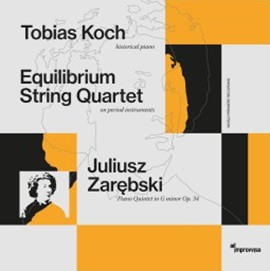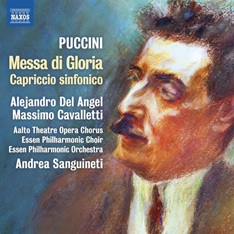Wenig bekannte Werke großer Meister haben den Reiz, uns erste Schritte, Spuren und Wege hin zu jenen Kompositionen aufzuzeigen, die letztlich im Kanon der klassischen Musik landen. Nicht anders ist es bei Giacomo Puccini, und hierin liegt ohne Zweifel der spannende Aspekt dieser neuen Produktion. Sie zeigt deutlich, dass die Bühne schon früh das wirkliche Bestreben des Komponisten war. Alle eingespielten Werke lassen erkennen, wohin die Reise des Mannes aus Lucca führen wird.
Es wäre denn auch fahrlässig, wenn Andrea Sanguineti als erfahrener Operndirigent dies unterbelichten, wenn nicht gar unterschlagen würde.
In den kurzen Orchesterstücken gelingt es ihm, das melodische Gespür Puccinis, dessen feines Näschen für eine gute Arie, sein Gefühl für dramatische Wucht und sein kluges Händchen für Orchestrierung in die rechte Balance zu bringen. Die Essener Philharmoniker musizieren klangstark, intensiv und einfühlsam.
Im Kernstück dieser Produktion, der Messa di Gloria, geht diese wohlstrukturierte Balance verloren. Vor allem in den mächtigen Tutti-Passagen – etwa im Gloria – lässt das Orchester durch seine enorme klangliche Präsenz die Chöre kaum zu Wort kommen. Diese reine Fülle von Ton steht im Gegensatz zu den intimen Teilen, wie das ‘Et incarnatus est’ oder das ‘Crucifixus’ im Credo. Hier kommen das Potenzial und die stimmlichen Qualitäten der Chöre wirklich zur Geltung, und auch die beiden Vokalsolisten können gestalterisch überzeugen.
So bleiben am Ende eher gemischte Eindrücke einer programmatisch attraktiven Produktion, die musikalisch doch unausgeglichen ist.
Little-known works by great masters have the appeal of showing us the first steps, traces, and paths that led to those compositions that ultimately ended up in the canon of classical music. This is no different with Giacomo Puccini, and therein lies the exciting aspect of this new production. It clearly shows that the stage was the composer’s true ambition from an early age. All the recorded works reveal where the journey of the man from Lucca will lead.
It would be negligent of Andrea Sanguineti, as an experienced opera conductor, to underemphasize or even ignore this.
In these short orchestral pieces, he strikes the right balance between Puccini’s melodic sensibility, keen ear for a good aria, sense of dramatic impact and clever orchestration. The Essen Philharmonic Orchestra plays with power, intensity and sensitivity.
In the centerpiece of this production, the Messa di Gloria, this well-structured balance is lost. Especially in the powerful tutti passages – such as in the Gloria -the orchestra’s enormous sonic presence hardly allows the choirs to be heard. This sheer richness of sound contrasts with the intimate parts, such as the ‘Et incarnatus est’ or the ‘Crucifixus’ in the Credo. Here, the potential and vocal qualities of the choirs really come into their own, and the two vocal soloists also give convincing performances.
In the end, what remains are rather mixed impressions of a programmatically attractive production that is nevertheless musically unbalanced.























